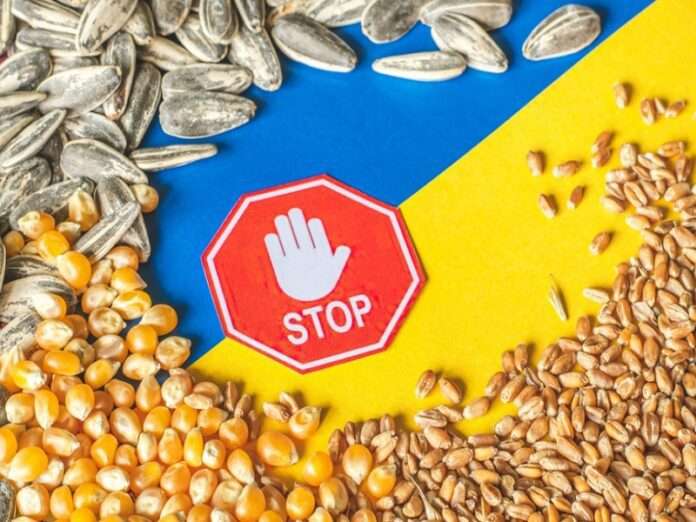Polish Prime Minister Morawiecki promised last week that his country will continue prohibiting the import of Ukrainian agricultural products upon the expiry of the European Commission’s (EC) related deal on 15 September if that body doesn’t once again extend it. That country, Ukraine’s other three EU neighbors, and nearby Bulgaria all unilaterally closed their borders to these exports in April to protect their farmers until the EC brokered a deal allowing them to transit through their territory.
This compromise infuriated Zelensky, however, who raged in early May that it’s “unacceptable” and accused the EU of “strengthen[ing] the aggressor’s capabilities.” His Deputy Economy Minister then specifically targeted Poland a month later by claiming that its farmer subsidies violate WTO rules. After that, Ukrainian Prime Minister Shmygal jumped on the Polish-bashing bandwagon in the days following Morawiecki’s abovementioned promise, condemning that country for its “unfriendly and populist move”.
A little while later, Zelensky once again raged against the EC’s deal by repeating what he earlier said about it being “unacceptable but this time added that it’s “clearly non-European”. That description took some chutzpah to spew considering that Ukraine isn’t a member of the EU and likely won’t join anytime soon since its fails to meet the economic, judicial, and political criteria for membership. Even so, Zelensky is still suggesting that Ukraine is more European than Poland, which is an insult to most Poles.
There’s no comparison between these two countries’ Europeanness from their perspective: Poland is Catholic while Ukraine is Orthodox; the first is an EU member while the second remains far away from joining; and the former considers itself having historically functioned as the West’s so-called “last bastion of civilization” from the supposedly “barbarian East” while the latter never conceived of itself this way. With these differences in mind, it’s understandable why many Poles are offended by Zelensky’s rhetoric.
Despite how much his choice of words wounds their pride, Poland’s ruling “Law & Justice” (PiS) party isn’t letting that impede their efforts to find a reasonable compromise on this sensitive issue. On the one hand, they can’t politically afford to have a glut of Ukrainian grain on their domestic market just ahead of fall’s upcoming elections since that could doom them at the polls, but they also don’t want the leader of their de facto confederate state to the East to become more resentful of their country either.
That’s why Polish Agriculture Minister Telus just proposed that the EU subsidize the costs of transporting Ukrainian grain across his country’s territory in order for it to remain competitive on the global market, which was seconded by EU Commissioner for Agriculture Wojciechowski, who’s a fellow Pole. In that scenario, Brussels would foot the bill in order to resolve this delicate dispute between Poland and Ukraine, thus letting both claim victory without the perception of this being at the other’s expense.
Poland’s farmers wouldn’t have to deal with a glut of foreign grain on the domestic market while Ukraine’s wouldn’t have to worry about their exports no longer being competitive since the EU would subsidize their transit to customers beyond that country’s immediate neighbors. Neither would therefore risk going out of business, though provided of course that Brussels agrees to subsidize this scheme, which it might very well do since EU members will probably remain some of Ukraine’s top customers.
President Putin reminded everyone in an article that he wrote ahead of this week’s second Russia-Africa Summit that “over 70 percent of the (grain deal’s) exports end[ed] up in high- and upper-middle-income countries, including in the European Union”, so the bloc might still get a deal despite footing the bill. It would of course be best for more than just 3% of Ukraine’s grain exports to go to the world’s neediest countries, but nobody should get their hopes up that this will happen after the end of the grain deal.
Considering the likelihood that Ukraine’s clientele will remain the same, they’d simply be getting less of a discount when importing its grain if they subsidize its transit across Poland and wherever else en route to their own markets, but it might still be profitable enough to do. Some sort of solution to this spat appears inevitable no matter what’s ultimately agreed upon, however, since the EU doesn’t want Polish-Ukrainian tensions over this sensitive issue to fester and lead to unpredictable consequences.








